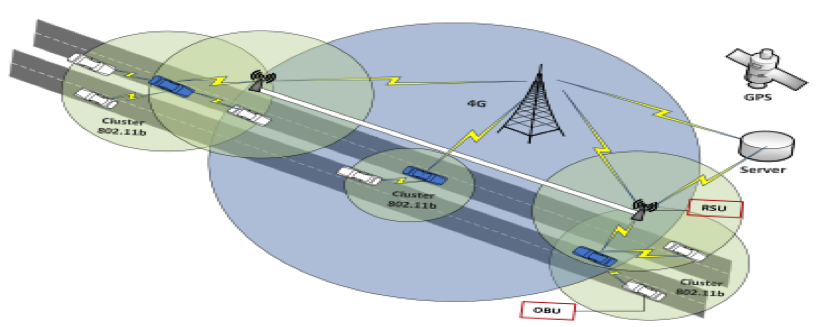Current projects

Vehicular Ad-hoc Networks
Supervisor(s): Dr Rob Edwards
Worldwide, because of reliance on fossil fuels, the combined use of public and private transportation represents the second largest cause of greenhouse gases and, since the number of cars continues to grow exponentially, the pollution is increasing.
It has been proposed that the greenhouse gases that originated climate change have been due in large part to vehicular congestion. Vehicular congestion, particularly in cities is directly linked to the quality of life. Respiratory diseases are most frequent in areas where the amount of pollutant particles in the air is high. Our hypothesis is that if traffic jams can be minimised air quality will improve and energy consumption will be reduced.
The aim of this research is to reduce congestion by improving large scale traffic flow on busy highways. A proportion of road users will be advised by an in-car device of the optimal speed for them which in turn will optimise the speed of all the cars in their immediate area. Compliance reduces the drivers’ road/toll tax. An example of the implementation of a related system is that of the London Congestion Charge that in its first year of operation (2003) reported traffic reductions of 25%.
In this system a percentage of vehicles (research) will dictate the flow characteristics of all vehicles on the highway. A large scale vehicular ad-hoc network is needed and upon that network an algorithm run to advise drivers. Future work involves the manufacture of the speed advice device and the choice of suitable machine learning algorithms for voluntary linear flow of vehicles.
Loughborough University (UK) will research the radio part whilst the University of Colima, Mexico, will research the ad-hoc network. All partners will integrate and develop the system.
The work at Loughborough will initially consider a 4G/5G backbone over an 802.11 family local vehicular ad-hoc network. Software defined radio may be used.
